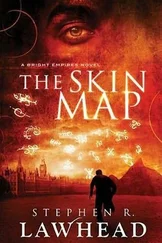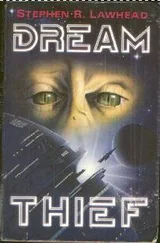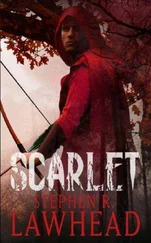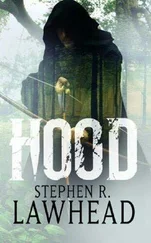Stephen Lawhead - Merlin
Здесь есть возможность читать онлайн «Stephen Lawhead - Merlin» весь текст электронной книги совершенно бесплатно (целиком полную версию без сокращений). В некоторых случаях можно слушать аудио, скачать через торрент в формате fb2 и присутствует краткое содержание. Жанр: Фэнтези, на английском языке. Описание произведения, (предисловие) а так же отзывы посетителей доступны на портале библиотеки ЛибКат.
- Название:Merlin
- Автор:
- Жанр:
- Год:неизвестен
- ISBN:нет данных
- Рейтинг книги:3 / 5. Голосов: 2
-
Избранное:Добавить в избранное
- Отзывы:
-
Ваша оценка:
- 60
- 1
- 2
- 3
- 4
- 5
Merlin: краткое содержание, описание и аннотация
Предлагаем к чтению аннотацию, описание, краткое содержание или предисловие (зависит от того, что написал сам автор книги «Merlin»). Если вы не нашли необходимую информацию о книге — напишите в комментариях, мы постараемся отыскать её.
Merlin — читать онлайн бесплатно полную книгу (весь текст) целиком
Ниже представлен текст книги, разбитый по страницам. Система сохранения места последней прочитанной страницы, позволяет с удобством читать онлайн бесплатно книгу «Merlin», без необходимости каждый раз заново искать на чём Вы остановились. Поставьте закладку, и сможете в любой момент перейти на страницу, на которой закончили чтение.
Интервал:
Закладка:
Gradlon, however, was a genuine host and made no secret of his allegiances, saying, 'A merchant pays tribute to the man who keeps his business healthy. If it is a king, I bow the knee; if an emperor, I kiss the hem. Either way I pay taxes.' He held a chubby finger in the air for emphasis. 'But I pay them gladly as long as the roads and sea routes remain open.'
The governor and magistrates held council in the governor's palace with the intention of drafting an ultimatum to lay at the feet of Emperor Aetius: send the troops, or lose Britain's good will.
Britain – in the greatest good will or vilest temper – had never been worth the Empire's sweat in maintaining it. Well, for a few generations the tin and lead and corn the Britons paid had been some value to the Empire, I suppose. But this little island had cost Rome far more than it ever returned.
Now, when the rest of the Empire bled under the relentless blows of the barbarian axe, the concerns of little Britanniarum were no concern of the Emperor at all. The small agonies of a flea-bitten hound in the Emperor's stable might elicit more sympathy, I considered, but could expect no more relief.
I pitied the governor and his magistrates for not realizing this.
Our future was as Britain, not Britanniarum. To think otherwise was folly. Perhaps dangerous folly at that. Reality can be most severe; it has a way of punishing those who ignore it too long.
The kings, on the other hand, were not much better. They believed, apparently, that the barbarian threat could be checked by personal aggrandizement: the greater the king, the more the Saecsen trembled.
I need not tell you what I think of such beliefs. Well, and this is how the council of kings began: deadlocked over the question of who was qualified to decide among those who fancied themselves capable of wielding Macsen Wledig's sword. The question of how to settle that question added another stratum of animosity to the proceedings.
The only voices of reason were those of Tewdrig and Custennin. But by the time they arrived, the others were too far withdrawn behind the walls in their indefensible positions to hear. Reason, as I have said, does not avail in these situations anyway.
Each day when the kings gathered in the church to begin their debate, I went with them, biding my time. I did not speak, and no one asked me. I waited, thinking I might yet find an opportunity to help. Certainly I could expect no more than that. One chance only. I must make it count.
While I waited, I sat in my place and watched all. I searched among them, noting each one carefully – the tone of his voice, his command, wisdom, strength. I weighed all and found none the measure of Aurelius, or Uther either, for that matter. Lord help us, I would have settled for a Vortigern!
The most able among them was Custennin. But his kingdom was small and he was a northerner. That is to say, he lacked the near inexhaustible wealth of the southern kings which he would need if he were to try maintaining two, or possibly three, courts and field a warband large enough to keep order in the land. And then, living so far in the north made him dubious in the south. Northerners, it was widely thought, were savages and brutes, lacking all refinement and civility. Men would never follow a king they considered little better than the barbarian.
Tewdrig, I thought, might be more likely. He possessed great wealth, enough to command the respect of the southern kings. But the Demetae and Silures, among the oldest tribes of Britons, were also the most independent. It was doubtful that other kings would hold to Tewdrig when already they complained of Dyfed's indifference and insularity. Also, I suspected that the High Kingship meant little to Tewdrig; it might mean more to his son, Meurig, but he was still an untried leader.
Of the others, Ceredigawn showed some promise. That his great grandfather was Irish might be overcome, for he was a forceful and upright ruler. But the fact that his family gained their realm by virtue of the unpopular Roman practice of planting rulers in troubled regions, over the protests of those who must live with them, was a lasting embarrassment. As a consequence, his people had never troubled themselves with forming alliances with other ruling houses and so Ceredigawn, however able, was not well liked.
As the days dragged on – days of insane posturing, absurd threats, and breathtaking arrogance – it became clear to me that there could be no harmony of opinion reached among them. Lord Dunaut, of the wealthy Brigantes, succeeded in thwarting all reasonable discussion with his ludicrous demand that the next High King should support the entire warhost out of his private treasury.
Rather than maintain the warhost of Britain from a warchest into which all the lords contributed equally, Dunaut and his friends insisted that the freedom of Britain depended upon the freedom of the High King to rule the warhost without let or hindrance from the petty kings. Otherwise, the small kings would be tempted to influence affairs by withholding tribute needed to support the warhost. 'The High King will only be free,' Dunaut declared, 'if he rules from his own treasury!'
This infuriated men like Eldof and Ogryvan and Ceredigawn – able leaders who nevertheless had trouble enough maintaining even their own modest warbands, simply because their lands were not so well suited to the growing of grain, or the mining of gold and silver.
While it did appeal to the vanity of men like Morganwg of Dumnonia, also very wealthy and very proud, who saw in the proposition the flash of imperial purple, it did not sit well with others who might have been persuaded, but recognized and resented Dunaut's vaunting ambition for what it was. The thought of Dunaut as High King over them, free to do as he pleased because he ruled the warhost unopposed could not be stomached, let alone seriously supported.
Time and again the debate foundered on this point; and, until it was settled, Dunaut and his supporters would allow no other to be raised. Other voices, other issues, battered down, ignored, discouraged in a hundred different ways, fell by the way.
Resentment grew, hardened; animosity spread; hostility flourished. It began to appear as if Bishop Urbanus' worst fears would come to bloody fruition: the next High King of Britain would only be chosen by the sharp edge of the sword.
Then something unforeseen happened. Two unsuspected allies appeared to forestall the rush to bloodshed: Ygerna, and Lot of Orcady; two whose sudden and unannounced emergence fairly startled the assembly, preoccupied as it was with thinking itself the centre of all creation.
Lot ap Loth, of the tiny island fastness of the Orcades in the far north, with his black braided locks and armbands of enamelled gold, the blue, woad-stained clan marks on his cheeks, and his crimson-and-black checked cloak, seemed a visitor from the Otherworld. He arrived with all the frost of a northern winter, unconcerned with the stir his coming provoked: young, high-spirited, but with such calm command that his glance unsettled kings twice his age.
The council had just reconciled itself to Lot's presence when Ygerna appeared. With an escort of Uther's chieftains – those who were still with her – she strode purposefully into the church, looking stern and strong and beautiful. Arrayed regally and simply, Ygerna wore a dove-grey cloak over a white mantle edged in silver; a slim golden tore encircled her throat. Every line of her body spoke eloquently of authority and reserve. Her grace and poise served a rebuke to the fatuous posing of the petty kings.
That these two should arrive so suddenly, and on the heels of one another, was perhaps more than coincidence. It was certainly uncanny in the effect it had on the council. For suddenly the mood of the assembly changed, as the lords evaluated the newcomers and calculated how best to make use of these unknown quantities. No one, I am quite convinced, had given a thought to either of them, or considered that they might have a part in the proceedings.
Читать дальшеИнтервал:
Закладка:
Похожие книги на «Merlin»
Представляем Вашему вниманию похожие книги на «Merlin» списком для выбора. Мы отобрали схожую по названию и смыслу литературу в надежде предоставить читателям больше вариантов отыскать новые, интересные, ещё непрочитанные произведения.
Обсуждение, отзывы о книге «Merlin» и просто собственные мнения читателей. Оставьте ваши комментарии, напишите, что Вы думаете о произведении, его смысле или главных героях. Укажите что конкретно понравилось, а что нет, и почему Вы так считаете.







